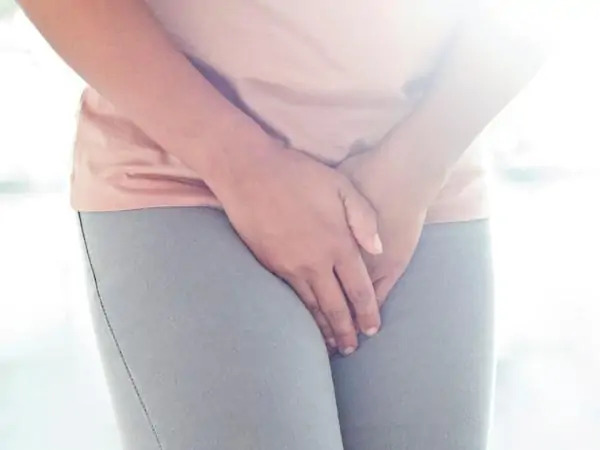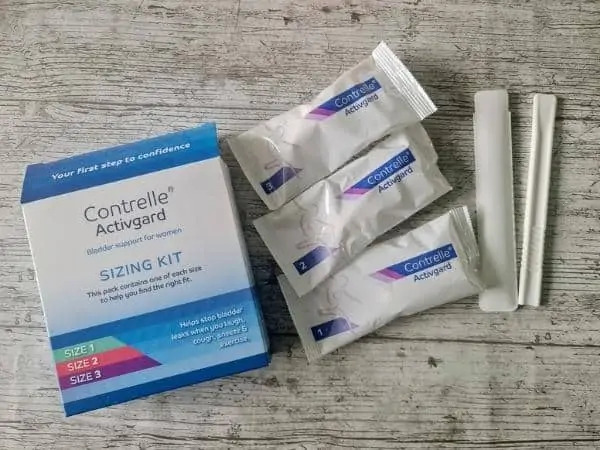We use cookies to make your experience better. To comply with the new e-Privacy directive, we need to ask for your consent to set the cookies. Learn more.
What Is Stress Urinary Incontinence And How To Improve It Easily
What Is Stress Urinary Incontinence And How To Improve It Easily
What Is Stress Urinary Incontinence And How To Improve It Easily
Guest Blog by Just Average Jen
Stress urinary incontinence is something that is often not talked about but it really should be. It affects many women out there and especially mums so it is something you really need to know about.
What Is Stress Urinary Incontinence?
Do you ever laugh or cough and a little wee leaks out? It can happen frequently or just once in a while, whenever it happens it is a problem, isn't it. Uncomfortable, embarrassing and makes you anxious about what you wear when you go anywhere in public.
Whilst I will talk predominantly about females, or those born with female anatomy, this is because it is something I understand more and most of my readers are female. The issue can affect men too but often in slightly different ways.
Other types of urinary incontinence include urge incontinence, when you suddenly have the need to go and can leak before you go or soon afterwards, and overflow incontinence which is when you are unable to fully empty your bladder.
All are issues that are problematic and can be helped. Whilst they are not the same as total incontinence when you can not hold urine at all, they are still hard to live with and they really don't have to be.
Who Gets Stress Urinary Incontinence?
Stress urinary incontinence affects a huge number of people. If you laugh, cough, sneeze, run or lift heavy things it can happen so obviously this is everyone! The name stress incontinence can be a little deceiving as whilst it is related to stress it is physical stress rather than psychological stress.
Doing things like sneezing, heavy lifting, laughing etc puts slight pressure on your bladder which can make a tiny bit of urine leak.
Stress urinary incontinence is more common in women and those with vaginas than men or those with a penis. It is also more common in those who have had children, the more children you have had the higher the chance of you having stress urinary incontinence.
Did you know weight loss can also affect bladder weakness? Read more about that here!

What Causes Stress Urinary Incontinence?
When your pelvic floor muscles and urinary sphincter are weak the pressure of a full bladder on these muscles means they struggle to stay tight. When pressure is put on these muscles by laughing, coughing, running etc the pressure on your bladder is greater and the muscles can not hold well so a small amount of urine leaks.
So, how are these muscles weakened? Childbirth is the most common cause of the weakening of these muscles. Tissue or nerve damage during delivery of the baby can weaken them and the damage of childbirth then causes stress urinary incontinence.
If, like me, you have a teenager now this, unfortunately, does not make you exempt. The effects of this damage and the weakening of these muscles can begin soon after delivery or years later.
This is why you are advised to do pelvic floor exercises soon after birth for just a few minutes a day to tighten and strengthen these muscles.
Stress urinary incontinence can also be worsened if you are overweight, smoke, have an illness that causes chronic coughing or do a lot of high impact exercises like running and jumping.
Interestingly it can also be caused by having an anteriorly (forward) tilted pelvis which can actually be realigned with therapy! This is something I was totally unaware of until I spoke to an expert in this Caroline Kremer who shared with me how she helped someone with this exact issue! I presumed all pelvises were the same!

Solutions And Treatment Options
Pelvic Floor Exercises
Whilst pelvic floor exercises are essentially more for prevention than cure they can help you even if you have issues already. Another name for pelvic floor exercises are kegel exercises. They will only help, however, if you do them regularly, like other exercises if you don't do them you don't get the benefit!
If, like me, you struggle to really understand what your pelvic floor is and why you should do these exercises this information from Pelvic Floor guru Julie Colan should help. She is passionate about making sure we are all aware of what to do and how for good pelvic floor muscles!
The pelvic floor is a muscle like any other and needs exercise. It's as simple as that. In order to do an effective Kegel (pelvic floor exercise), you need to imagine holding in wind and wee at the same time. This is the area you need to contract. Pull up for 10 seconds (know as the Slow Kegel) and then rest for 5 seconds. Repeat 10 times. Follow this with the 'Fast Kegel' - pull up fast for one second, rest for one second and repeat 10 times. These need to be done twice a day for life! Do them when you are brushing your teeth. Make it a daily habit. For ladies who leak when they laugh, cough or sneeze, this fast Kegel - also known as the 'Knack' is 80% successful.
Medication
Whilst medication can be prescribed there are mixed reviews about it and in many cases, it is unsuccessful for stress urinary incontinence alone so it is always good to try other treatments first. You can also check out Confitrol24, a supplement that is clinically proven to help reduce UI.
Contrelle
Contrelle is a soft foam bladder support inserted into the vagina that is designed to stop bladder leaks before they happen, rather than absorbing them. It can be inserted before embarking on any kind of exercise, before a night out, or before any activity that might involve being a long way from a bathroom.
It can be worn for up to 16 hours. Contrelle is discreet and it can be used by the majority of suffers as and when needed, in combination with pelvic floor exercises or as an easy solution without having to see the GP or have anything professionally fitted!.

Vaginal Pessary
This is used mostly in people who are suffering from stress urinary incontinence due to a pelvic organ prolapse so might not be suitable for all cases. It is a small ring that is inserted by a doctor or nurse to hold the urethra and support the base of your bladder.
Urethral Inserts
This is a small tampon-like disposable device inserted for up to 8 hours a day to essentially block the urethra and prevent leakage. Personally, I am not too sure about the idea of inserting something up my urethra, what do you think?
Changing Your Fluid Consumption
The drinks you enjoy and the times you drink can make a difference to the severity of your stress urinary incontinence. This is something that may be worth considering and talking to a medical professional about.
Reducing carbonated, caffeinated, and alcoholic drinks are all often thought to improve symptoms. Of course, there is no guarantee they will help but it is worth keeping an eye on when the incontinence is worse and if it correlates with what you are drinking.
My Thoughts
All these ideas and treatments are obviously much preferable to surgery for the vast majority of people. I love the idea that some of the solutions are things you can do or buy at home without even having to see the dr. I know I shouldn't feel embarrassed seeing the doctor about things like this but I do!
Luckily I have never really suffered with stress urinary incontinence and on the whole, touch wood, all have been fine, but if I do have issues I will most definitely be trying things myself if I can first, and researching more about this has made me adamant I will keep doing my pelvic floor exercises!










